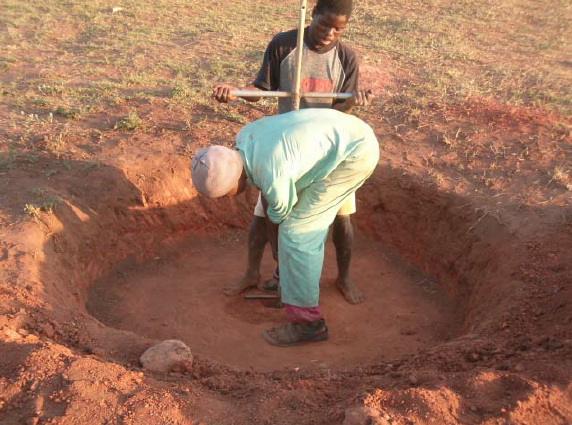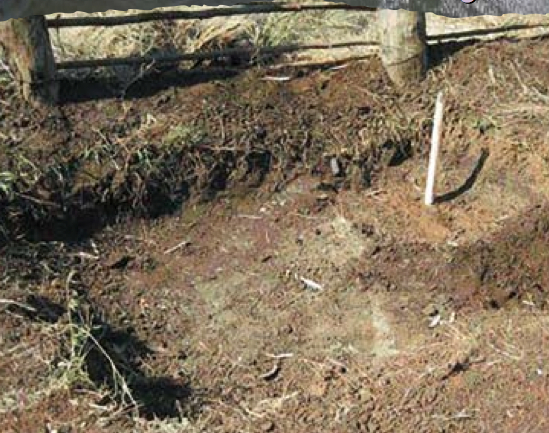Difference between revisions of "管道补给"
From Akvopedia
Weichen Chen (talk | contribs) (Created page with "80px Image:TubeRechargeDrilling.jpg|thumb|right|200px| 2006年6月莫桑比克希莫尤,使用手钻钻洞为管道补给系统做...") |
(No difference)
|
Revision as of 08:44, 28 August 2015
管道补给成本低,它结合了人为填洞和铺设排水管道。排水管道穿过压实的表层土。之前雨水通常会蒸发或者流入河水,但现在能渗进土壤补给含水层。
管道补给系统由塑料软管或PVC管道组成,直径为20-30毫米。这些管道铺设在人为钻取的洞中、抽水井的上游、自然集水处或人造池塘中。雨水填满池塘后,必须先等几个小时才能打开排水管道,以便处理污垢。水进入管道之前先经过过滤管道。根据压实表层土的面积,管道长度为5-10米不等,而且不会到达含水层。
由于池塘面积不同,每次下雨将为含水层补给大约2-10立方米的水。地下水的水量和水流模式决定旱季时抽出的水量。
适宜条件
当地的地质状况决定具体要求、成本和时间:如果没有石头和巨砾,一天可钻取一个深度为10米的洞,如果使用钻孔机(如螺旋钻或手钻 - 常规)则无需一天。
Construction, operations and maintenance
- Prior to placing the recharge tubes, testing is needed to determine the best sizes of tube, depth, maximum capacity of recharge, etc.
- Maintenance consists of unclogging the drainage tube by swabbing: moving a stick with a cloth up and down the drainage hole.
- Before recharge systems are applied on a larger scale, their effectiveness in a given context should be further investigated by means of smaller pilot systems.
Costs
- Total costs per system (drilling, tubes, labour): US$ 5 - 30.
- Step auger or Baptist drill set for holes up to 12 m (can be used for many holes): US$ 75.
If the holes are drilled by families themselves, the costs can be minimised.
Manuals, videos and links
Draft Short Manual On Tube Recharge Methodology. Arrakis, 2006.
Acknowledgements
- Smart Water Harvesting Solutions: Examples of innovative, low cost technologies for rain, fog, and runoff water and groundwater. (or alternative link) Netherlands Water Partnership, Aqua for All, Agromisa, et al. 2007.


